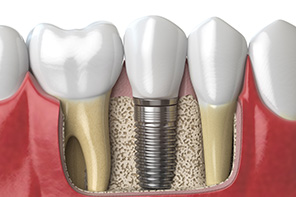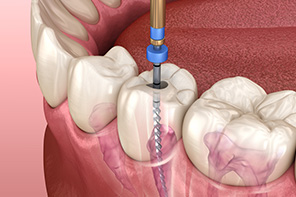Dental Care
Our team of dental experts restore confidence in your smile and improve your oral health.

Dental operations refer to the various procedures and treatments performed by dentists to diagnose, treat, and prevent oral health conditions. Dental operations can range from routine check-ups and cleanings to more complex procedures such as extractions, fillings, root canals, and dental implants. Here are some common dental operations:
- Dental Cleanings: Regular dental cleanings, also known as prophylaxis, involve the removal of plaque, tartar, and stains from the teeth. It helps prevent gum disease and tooth decay. During a dental cleaning, a dental hygienist or dentist uses special tools to remove plaque, tartar, and stains from the teeth. They may use a scaler to scrape off hardened plaque and tartar from the tooth surfaces, followed by polishing with a high-powered electric brush and abrasive toothpaste. Finally, they may floss between the teeth to remove any remaining debris.
- Fillings: When a tooth has a cavity, a dentist removes the decayed portion and fills the area with dental filling material, such as composite resin or amalgam, to restore the tooth’s function and appearance. The procedure for dental fillings involves several steps. First, the dentist will administer a local anesthetic to numb the area around the tooth being treated. Next, they will use a dental drill or laser to remove the decayed portion of the tooth. Once the decay is removed, the dentist will clean the area thoroughly and fill it with suitable dental filling material, such as composite resin or amalgam. They will shape and polish the filling to ensure a comfortable bite and natural appearance.
- Root Canals: Root canal therapy is performed when the dental pulp, which contains nerves and blood vessels, becomes infected or damaged. The procedure involves removing the infected pulp, cleaning the root canal, and sealing it with a filling material. Root canal therapy typically requires multiple appointments. In the first appointment, the dentist will numb the area with a local anesthetic. They will then create a small access hole in the tooth to reach the infected dental pulp. Using specialized instruments, the dentist will carefully remove the infected or damaged pulp from the root canals. The canals are then cleaned, shaped, and disinfected. In the next appointment, the canals are filled with a biocompatible material called gutta-percha, and the access hole is sealed. In some cases, a dental crown may be placed over the treated tooth for added protection and strength.
- Tooth Extractions: Tooth extractions may be necessary if a tooth is severely damaged, decayed, impacted, or caused overcrowding. Simple extractions involve removing a visible tooth, while surgical extractions are more complex and may require an incision or bone removal. Simple tooth extractions are usually performed under local anesthesia. The dentist will loosen the tooth using an instrument called an elevator and then use forceps to gently remove the tooth from its socket. More complex surgical extractions may involve making an incision in the gum tissue, removing bone around the tooth, or sectioning the tooth into smaller pieces for easier extraction. After the extraction, the dentist may place stitches and provide post-operative instructions for proper healing.
- Dental Implants: Dental implants are used to replace missing teeth. They involve surgically placing a titanium implant into the jawbone, which acts as an artificial tooth root. A crown is then attached to the implant, providing a natural-looking and functional replacement tooth. Dental implant placement is a multi-step process that requires several appointments over a few months. First, the dentist surgically places a titanium implant into the jawbone, where it integrates and fuses with the bone through a process called osseointegration. After a healing period of several months, during which the implant becomes stable, a second surgery may be performed to expose the implant and attach an abutment, which connects the implant to the dental crown. Finally, a custom-made dental crown is attached to the abutment, providing a functional and aesthetically pleasing replacement tooth
- Orthodontic Treatments: Orthodontic procedures, such as braces or clear aligners, are used to correct misaligned teeth, bite issues, and jaw alignment problems. They help improve the appearance and function of the teeth and jaw.
- Periodontal Treatments: Periodontal or gum disease treatments include scaling and root planing, which involve deep cleaning of the gums and tooth roots to remove plaque and tartar. In severe cases, surgical procedures like gum grafting or flap surgery may be necessary.
- Dental Restorations: Dental restorations include procedures like dental crowns, bridges, and dentures. These restorations are used to replace missing teeth, restore damaged teeth, and improve overall oral function and aesthetics.
These are just a few examples of dental procedures, and each procedure has its specific techniques and variations. The dentist will determine the best approach based on the individual patient’s needs and oral health condition. It’s important to remember that dental procedures should always be performed by a qualified and experienced dentist or dental specialist to ensure safety and optimal results.
It’s important to note that specific dental operations may vary depending on individual needs and the recommendations of the dentist. If you have any specific dental concerns or need treatment, it’s best to consult a qualified dentist for an accurate diagnosis and appropriate treatment plan.
Top of Form
Who can have dental operations?
Dental operations can be performed on individuals of various ages and with different dental needs. Generally, anyone who requires dental treatment or has specific dental concerns can have dental operations. Here are some groups of people who commonly undergo dental operations:
- Children: Children may need dental operations such as dental cleanings, fillings, extractions, and orthodontic treatments. Pediatric dentists specialize in treating children and can provide appropriate dental care for their specific needs.
- Adults: Dental operations are commonly performed on adults to address a wide range of dental issues. This includes routine dental cleanings, fillings, root canals, dental restorations, periodontal treatments, dental implants, and more. Adults may also seek cosmetic dental procedures like teeth whitening or veneers to enhance their smile.
- Seniors: As people age, dental issues can become more prevalent. Seniors may require dental operations to address problems such as tooth decay, gum disease, tooth loss, and denture fittings. Regular dental check-ups and maintenance are particularly important for seniors to maintain their oral health.
- Individuals with Specific Dental Conditions: People with specific dental conditions such as malocclusions, temporomandibular joint (TMJ) disorders, cleft lip, and palate, or oral cancers may require specialized dental operations tailored to their unique needs. Dentists and oral surgeons work closely with these patients to develop treatment plans and perform necessary procedures.
It’s worth noting that some individuals with certain medical conditions or compromised immune systems may require special considerations during dental operations. Individuals need to provide their dentist with a complete and accurate medical history to ensure safe and effective treatment.
Ultimately, the necessity and suitability of dental operations are determined on a case-by-case basis. If you have specific dental concerns or require dental treatment, it is advisable to consult with a qualified dentist who can evaluate your oral health and recommend appropriate dental operations for your specific needs.
Why people do have dental operations?
People undergo dental operations for a variety of reasons, ranging from preventive care to addressing specific dental issues or improving oral aesthetics. Here are some common reasons why individuals may have dental operations:
- Dental Decay: Dental operations such as fillings, root canals, or extractions may be necessary to treat dental decay or cavities. These procedures aim to remove the decayed portion of the tooth, restore its structure, and prevent further damage or infection.
- Gum Disease: Advanced stages of gum disease, known as periodontitis, may require dental operations such as deep cleaning (scaling and root planing), gum surgery, or periodontal pocket reduction. These procedures aim to remove tartar, bacteria, and diseased tissue, and promote gum tissue regeneration.
- Tooth Loss: Dental operations like dental implants or bridges are performed to replace missing teeth. Dental implants involve surgically placing a titanium post into the jawbone, which acts as an artificial tooth root to support a dental crown. Bridges, on the other hand, use adjacent teeth as support for a prosthetic tooth or teeth.
- Orthodontic Corrections: Dental operations are sometimes necessary for orthodontic corrections, such as the placement of braces or aligners. These treatments aim to straighten crooked teeth, correct bite alignment issues, and improve overall dental aesthetics and function.
- Wisdom Teeth Removal: Wisdom teeth, also known as third molars, often require surgical extraction. These teeth can become impacted, partially erupt, or cause overcrowding, leading to pain, infections, or other dental issues. Removing the wisdom teeth can prevent further complications and maintain oral health.
- Dental Trauma or Injury: Dental operations may be necessary to repair or restore teeth damaged due to trauma or injury. This can include procedures such as dental bonding, dental crowns, or root canal treatment to address fractures, chips, or dislodged teeth.
- Cosmetic Dentistry: Dental operations can also be performed for cosmetic purposes to enhance the appearance of the teeth and smile. These may include procedures like teeth whitening, dental veneers, or gum contouring to improve tooth color, shape, or overall aesthetics.
- Oral Surgeries: Some dental operations involve more complex oral surgeries, such as jaw realignment (orthognathic surgery), treatment of oral cancers, or removal of cysts or tumors in the oral cavity. These procedures are performed to address specific medical or dental conditions.
It’s important to note that dental operations should be performed by qualified dental professionals based on a thorough evaluation of each individual’s oral health needs. Regular dental check-ups and preventive care can help identify and address dental issues early, potentially reducing the need for more extensive dental operations in the future.
Before the operation
Before undergoing dental operations, there are several important steps and preparations that individuals should take. Here are some key considerations:
- Consultation and Evaluation: Schedule an initial consultation with your dentist or oral surgeon. They will evaluate your oral health, discuss the recommended procedure, and address any concerns or questions you may have. This is an opportunity to provide your complete medical history, including any medications you are taking, allergies, and previous dental treatments.
- Pre-Operative Instructions: Your dentist will provide specific pre-operative instructions tailored to your procedure. It’s essential to follow these instructions carefully to ensure a successful and safe operation. Instructions may include guidelines on fasting (if necessary), medication adjustments, and oral hygiene practices before the procedure.
- Medications: Inform your dentist about any prescription medications, over-the-counter medications, or supplements you are currently taking. They will advise you on whether to continue taking them or make any adjustments prior to the dental operation. In some cases, antibiotics or other medications
may be prescribed before the procedure to prevent infections or manage specific conditions.
- Fasting: Depending on the type of dental operation and the anesthesia used, you may be instructed to fast for a certain period before the procedure. This helps reduce the risk of complications, particularly if general anesthesia or deep sedation is planned. Follow the fasting instructions provided by your dentist or oral surgeon to ensure a safe procedure.
- Transportation Arrangements: If you will be receiving sedation or anesthesia during the dental operation, it is important to arrange for transportation to and from the dental office or hospital. The effects of sedation can impair your ability to drive, so having a responsible adult accompany you is crucial for your safety.
- Comfortable Clothing: Wear loose, comfortable clothing on the day of the dental operation. This will allow you to feel relaxed and provide ease of movement during the procedure. Avoid wearing jewelry, contact lenses, or accessories that may interfere with the dental operation.
- Arrange for Support: Depending on the nature of the dental operation, you may require assistance and support during your recovery period. Arrange for a friend or family member to stay with you for a few hours or days following the procedure, if needed. They can help with transportation, provide assistance at home, and offer support during your recovery.
- Ask Questions: If you have any doubts or concerns about the dental operation, don’t hesitate to ask your dentist or oral surgeon. They are there to provide you with the necessary information and address your concerns, ensuring that you feel informed and comfortable before the procedure.
Remember, every dental operation is unique, and specific instructions may vary depending on the procedure and the individual’s health status. It is essential to follow the guidance provided by your dentist or oral surgeon to maximize the success and safety of the dental operation.
How is the process after dental operations
The process after dental operations can vary depending on the type of procedure performed. Here are some general considerations for post-operative care following dental operations:
- Pain Management: Depending on the complexity of the procedure, you may experience some discomfort or pain after dental operations. Your dentist may prescribe pain medication or recommend over-the-counter pain relievers to manage any post-operative pain. Follow the instructions provided by your dentist and take the medications as directed.
- Swelling and Bruising: Swelling and bruising are common after dental operations, particularly oral surgeries or extractions. Applying an ice pack to the affected area for short intervals during the first 24 to 48 hours can help reduce swelling. Your dentist may also provide specific instructions on managing swelling and bruising.
- Bleeding: It is normal to experience some bleeding immediately after dental operations, especially extractions or gum surgeries. Your dentist will provide instructions on how to control and manage bleeding, such as biting down on a gauze pad or using a tea bag. Avoid activities that can increase bleeding, such as spitting forcefully or drinking through a straw.
- Oral Hygiene: Maintaining good oral hygiene is crucial after dental operations. However, your dentist may recommend specific instructions for the first few days to ensure proper healing. This may include avoiding vigorous brushing or flossing around the treated area, using a prescribed mouthwash or saline rinse, and gently cleaning the surrounding teeth.
- Diet: Your dentist may suggest sticking to a soft or liquid diet immediately following certain dental operations. Avoid hard, crunchy, or sticky foods that could disturb the surgical site or cause pain. Gradually reintroduce solid foods as directed by your dentist.
- Follow-up Appointments: Depending on the procedure performed, you may need to schedule follow-up appointments with your dentist or oral surgeon. These appointments allow your dentist to monitor your healing progress, remove any sutures if necessary, and ensure that the treatment is successful.
- Rest and Recovery: Give yourself ample rest and time to recover after dental operations, especially if the procedure required anesthesia or sedation. Avoid strenuous activities, exercise, and heavy lifting for a few days or as advised by your dentist.
It’s important to closely follow the post-operative instructions provided by your dentist. If you experience severe or prolonged pain, excessive bleeding, persistent swelling, or any other concerning symptoms, contact your dentist promptly for further guidance and evaluation.
Remember, the post-operative process can vary based on the specific dental operation you undergo, so it’s essential to consult with your dentist or oral surgeon for personalized instructions and guidance.





